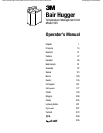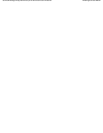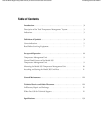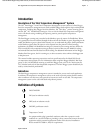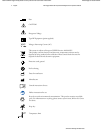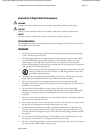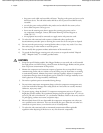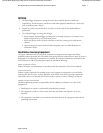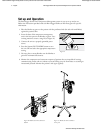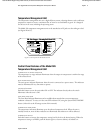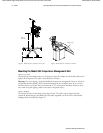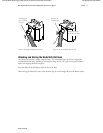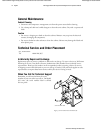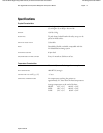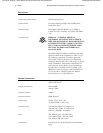Bair Hugger Model 505 Temperature Management Unit Operator’s Manual English 7
English 202431A
Check the 3M
TM
Bair Hugger
TM
therapy website to ensure you have the most recent version of this document. www.bairhugger.com reorder #202431A
NOTICES
1. The Bair Hugger temperature management unit meets medical electronic interference
requirements. If radio frequency interference with other equipment should occur, connect the
unit to a different power source.
2. Federal law (USA) restricts this device to sale by or on the order of a licensed healthcare
professional.
3. To avoid Bair Hugger warming unit damage:
• do not immerse the Bair Hugger warming unit or warming unit parts or accessories in any
liquid or subject them to any sterilization process.
• do not use solvents such as acetone or thinner to clean the warming unit; avoid abrasive
cleaners.
• clean warming unit exterior with soft cloth using plain water or a mild, all-purpose or
nonabrasive cleaner.
Read Before Servicing Equipment
The repair, calibration and servicing of the temperature management unit requires the skill of
qualified technical personnel who are familiar with good practice for medical device repair. If service is
designated as not requiring the manufacturer’s attention, the technical information is provided in the
Service Manual or will be provided upon request by 3M Patient Warming.
Perform all repairs and maintenance in accordance with the instructions in the Service Manual.
Perform a safety inspection after making repairs to the temperature management unit and before
returning the unit to service. A safety inspection must include a test of the operating temperatures
(described in the Service Manual), the Over Heat Alarm system, as well as a leakage current test.
3M Patient Warming assumes no responsibility for the reliability, performance, or safety of the
equipment if:
• Modifications or repairs are performed by unauthorized personnel.
• The equipment is used in a manner other than that described in the Operator’s or Service
Manuals.
• The equipment is installed in an environment that does not meet the appropriate electrical and
grounding requirements.



